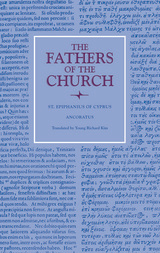
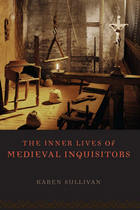
There have been numerous studies in recent decades of the medieval inquisitions, most emphasizing larger social and political circumstances and neglecting the role of the inquisitors themselves. In this volume, Karen Sullivan sheds much-needed light on these individuals and reveals that they had choices—both the choice of whether to play a part in the orthodox repression of heresy and, more frequently, the choice of whether to approach heretics with zeal or with charity.
In successive chapters on key figures in the Middle Ages—Bernard of Clairvaux, Dominic Guzmán, Conrad of Marburg, Peter of Verona, Bernard Gui, Bernard Délicieux, and Nicholas Eymerich—Sullivan shows that it is possible to discern each inquisitor making personal, moral choices as to what course of action he would take. All medieval clerics recognized that the church should first attempt to correct heretics through repeated admonitions and that, if these admonitions failed, it should then move toward excluding them from society. Yet more charitable clerics preferred to wait for conversion, while zealous clerics preferred not to delay too long before sending heretics to the stake. By considering not the external prosecution of heretics during the Middles Ages, but the internal motivations of the preachers and inquisitors who pursued them, as represented in their writings and in those of their peers, The Inner Lives of Medieval Inquisitors explores how it is that the most idealistic of purposes can lead to the justification of such dark ends.

Harvard University Press takes pride in publishing the third edition of a work whose depth, scope, and wisdom have gained it international recognition as a classic in its field. Harry Austryn Wolfson, world-renowned scholar and most lucid of scholarly writers, here presents in ordered detail his long-awaited study of the philosophic principles and reasoning by which the Fathers of the Church sought to explain the mysteries of the Trinity and the Incarnation.
Professor Wolfson first discusses the problem of the relation of faith and reason. Starting with Paul, who, differentiating between the wisdom of God and the wisdom of the world, averred that he was not going to adorn his teachings with persuasive arguments based on the wisdom of the world, Professor Wolfson describes the circumstances and influences which nevertheless brought about the introduction of philosophy into matters of faith and analyzes the various attitudes of the Fathers towards philosophy.
The Trinity and the Incarnation are Professor Wolfson’s next concern. He analyzes the various ways in which these topics are presented in the New Testament, and traces the attempts on the part of the Fathers to harmonize these presentations. He shows how the ultimate harmonized formulation of the two doctrines was couched in terms of philosophy; how, as a result of philosophic treatment, there arose with regard to the Trinity the problem of three and one and with regard to the Incarnation the problem of two and one; and how, in their attempts to solve these problems, the Fathers drew upon principles which in philosophy were made use of in the solution of certain aspects of the problem of the one and the many. In the final part of this volume, entitled “The Anathematized,” he deals with Gnosticism and other heresies which arose during the Patristic period with regard to the Trinity and the Incarnation.
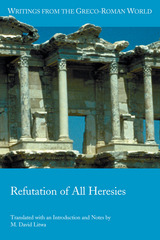
A reliable, readable translation for scholars and students
The Refutation of All Heresies (ca. 225 CE) is a treasure-trove of ancient philosophy, astrology, medicine, magic, Gnostic thought, numerology, heresiography, ecclesial politics, and early Christian studies in general. Offered here for the first time in almost a century is a full English translation, along with a newly-edited Greek text, extensive notes, and a thorough introduction.
Features:
- A full English translation with extensive notes
- Newly edited Greek text that avoids the pitfalls of the most recent edition
- A thorough-going introduction that addresses the questions of authorship, date, and audience, as well as the purpose of the book, its organization, method, and importance for Gnostic studies
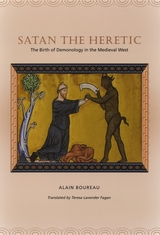
Depicting this new demonology, Satan the Heretic considers the period between the mid-thirteenth and mid-fourteenth centuries when demons, in the eyes of Church authorities, suddenly burst forth, more real and more terrifying than ever before in the history of Christianity. Boureau argues that the rise in this obsession with demons occurs at the crossroads of the rise of sovereignties and of the individual, a rise that, tellingly, also coincides with the emergence of the modern legal system in the European West.
Teeming with original insights and lively anecdotes, Satan the Heretic is a significant contribution to the history of Christian demonology from one of the most original minds in the field of medieval studies today.
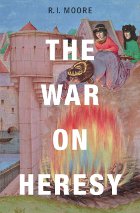
Between 1000 and 1250, the Catholic Church confronted the threat of heresy with increasing force. Some of the most portentous events in medieval history-the Cathar crusade, the persecution and mass burnings of heretics, the papal inquisition established to identify and suppress beliefs that departed from the true religion-date from this period. Fear of heresy molded European society for the rest of the Middle Ages and beyond, and violent persecutions of the accused left an indelible mark. Yet, as R. I. Moore suggests, the version of these events that has come down to us may be more propaganda than historical reality.
Popular accounts of heretical events, most notably the Cathar crusade, are derived from thirteenth-century inquisitors who saw organized heretical movements as a threat to society. Skeptical of the reliability of their reports, Moore reaches back to earlier contemporaneous sources, where he learns a startling truth: no coherent opposition to Catholicism, outside the Church itself, existed. The Cathars turn out to be a mythical construction, and religious difference does not explain the origins of battles against heretic practices and beliefs.
A truer explanation lies in conflicts among elites-both secular and religious-who used the specter of heresy to extend their political and cultural authority and silence opposition. By focusing on the motives, anxieties, and interests of those who waged war on heresy, Moore's narrative reveals that early heretics may have died for their faith, but it was not because of their faith that they were put to death.
READERS
Browse our collection.
PUBLISHERS
See BiblioVault's publisher services.
STUDENT SERVICES
Files for college accessibility offices.
UChicago Accessibility Resources
home | accessibility | search | about | contact us
BiblioVault ® 2001 - 2024
The University of Chicago Press









